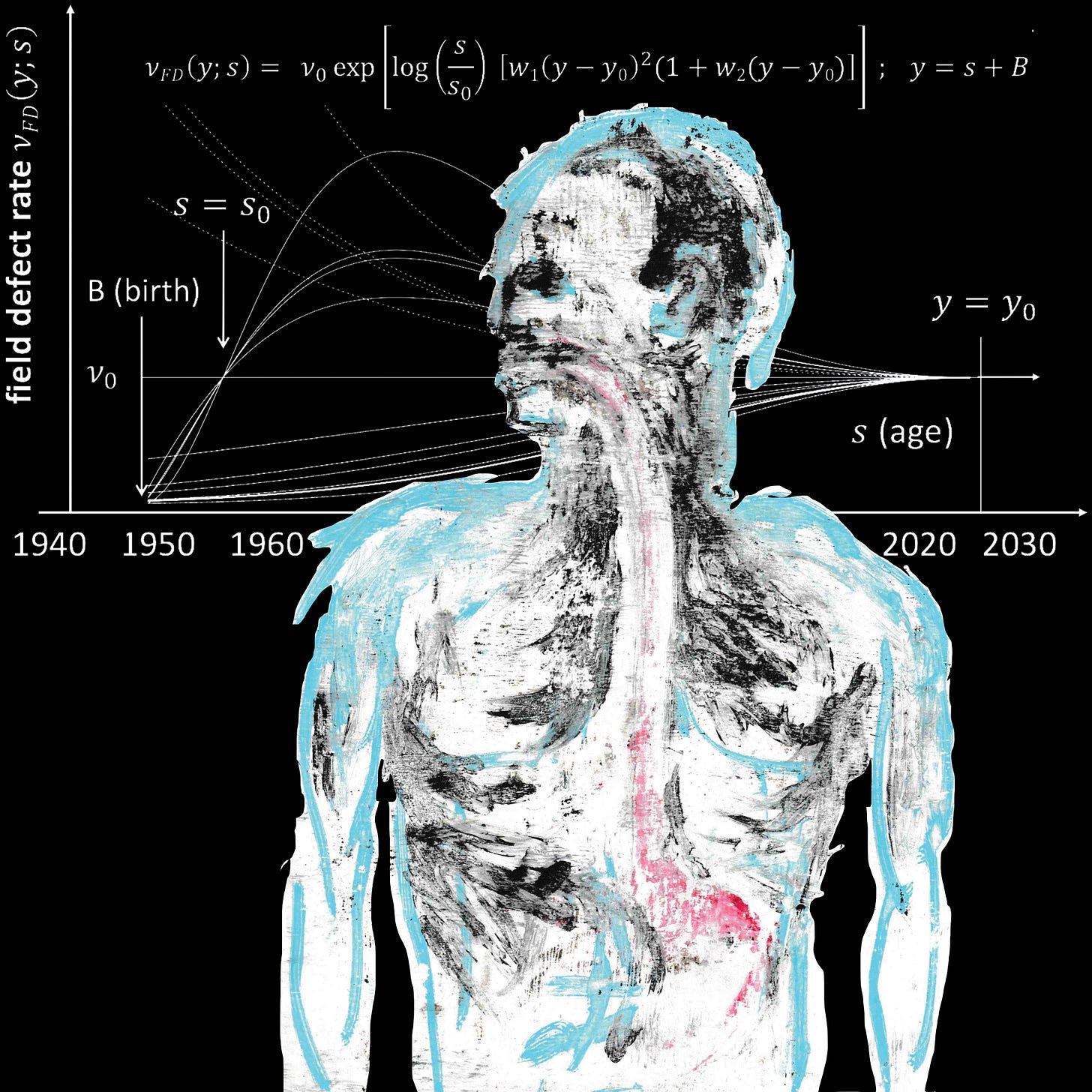This week in MathOnco 164
Newsletter news; matrix adhesion; tumor spheroids; parameter estimation; selection for metastases
“This week in Mathematical Oncology” — Newsletter
May. 27, 2021
>jeffrey.west@moffitt.org
>
From the editor:
Today, the newsletter has some exciting news — we’ve recruited more help on the editorial team. Please welcome Maximilian Strobl to the team. He recently completed his PhD on adaptive cancer therapy as part of a joint program between the University of Oxford and the Moffitt Cancer Center, and he’s now pursuing a postdoc in the Anderson lab here at Moffitt. Find out more about his work here. Feel free to send correspondence and inquiries regarding newsletter submissions to any of us on the editorial team: Maximilian Strobl, Alexander (Sandy) Anderson, or myself.
Enjoy!
-Jeffrey West
Modeling historic incidence trends implies early field cancerization in esophageal squamous cell carcinoma
Georg E. Luebeck, Thomas L. Vaughan, Kit Curtius, William D. HazeltonMatrix adhesion and remodeling diversifies modes of cancer invasion across spatial scales
D. Pramanik, M. K. Jolly, R. BhatSelection of metastasis competent subclones in the tumour interior
Yue Zhao, Xiao Fu, Jose I. Lopez, Andrew Rowan, …, Charles Swanton, Samra Turajlic, TRACERx Renal Consortium, Kevin LitchfieldUtilizing graph machine learning within drug discovery and development
Thomas Gaudelet, Ben Day, Arian R Jamasb, Jyothish Soman, …, David Roblin, Tom L Blundell, Michael M Bronstein, Jake P Taylor-KingMathematical Model of Tumour Spheroid Experiments with Real-Time Cell Cycle Imaging
Wang Jin, Loredana Spoerri, Nikolas K. Haass & Matthew J. SimpsonComputational tools to assess the functional consequences of rare and noncoding pharmacogenetic variability
Yitian Zhou, Volker M. LauschkeMesKit: a tool kit for dissecting cancer evolution of multi-region tumor biopsies through somatic alterations
Mengni Liu, Jianyu Chen, Xin Wang, Chengwei Wang, Xiaolong Zhang, Yubin Xie, Zhixiang Zuo, Jian Ren, Qi Zhao
Fides: Reliable Trust-Region Optimization for Parameter Estimation of Ordinary Differential Equation Models
Fabian Fröhlich, Peter K. Sorger
1. 2021 PhysiCell Workshop and Hackathon
Paul Macklin is organizing a virtual workshop and hackathon July 25-31 on multiscale cancer modeling using PhysiCell—an open source agent-based modeling platform. Participants will learn to build agent-based models of cancer in diffusion-driven microenvironments, integrate intracellular signaling models, share models as cloud-hosted web apps, and compete in a hackathon. Tutorial sessions are open to the public and streamed, while the afternoon hackathon is reserved for up to 30 participants, who will receive a $1500 honorarium (and PhysiCell swag!) For fullest consideration, apply by May 31, 2021 at http://PhysiCell.org/ws2021. Follow @PhysiCell (Twitter) and @get.PhysiCell (Instagram) for details.
2) Cancer Cells Parasitize Other Ones to Survive: Study
The Scientist
Marcus A. Banks: “Tumor cells missing a critical protein enter neighboring cells to sap their nutrients, then exit those hosts as intact cells, possibly primed to metastasize. Other scholars say it’s too early to know this for sure.”
3) Cells we were taught to ignore have been caught on tape doing the unthinkable
Neo.life
Kat Arney: “The experimental setup was straightforward, if sophisticated. First mix different populations of cells together, label each with different colored fluorescent tags—red for the cancer cells, green for the healthy ones—and then watch as they go about their daily lives. Slowly he scanned across the plastic dish, monitoring the cells as they passed under the lens. Red. Green. Green. Red. Red. Green. Then… orange?”
The newsletter now has a dedicated homepage (thisweekmathonco.substack.com), which allows us to post cover artwork for each issue. We encourage submissions that coincide with the release of a recent paper from your group. Today’s submission was contributed by Professor Kit Curtius and is inspired by her recent work on the oncogenesis of esophageal cancer:
Caption: Our recent mathematical analyses of incidence patterns suggest that esophageal squamous cell carcinoma (ESCC) is likely associated with a premalignant field that may develop very early in life and is under the influence of strong historic trends, which vary by sex and race. In the image, an organic human form with esophagus stands in front of our Figure illustrating a new functional regularization method for handling period trends, with some randomly generated trajectories for field defect (FD) onset rates. See full publication in PLoS Computational Biology here.
Created by Ben Day Todd (www.bendaytodd.com), submitted by Professor Kit Curtius.
Networks in Cancer: From Symmetry Breaking to Targeted Therapy
Guest Editor: Cristian Axenie, Roman Bauer, María Rodríguez MartínezUnderstanding the Evolutionary Dynamics and Ecology of Cancer in Treatment Resistance
Guest Editor: David BasantaFrom Ecology to Cancer Biology and Back Again
Guest Editors: Fred Adler, Sarah Amend, Chris WhelanFrontiers in quantitative cancer modeling
Guest Editors: Mohit Kumar Jolly, Heiko Enderling
Senior Quantitative Systems Pharmacologist, Pfizer Oncology (Blerta Shtylla)
Mathematical Immuno-Oncology postdoc (Kasia Rejniak, Moffitt)
Research Fellow in Computational Systems Biology Cancer Research (Simon Mitchell)
PhD student - Measuring cancer evolution in a changing tumour microenvironment (Xiaowei Jiang)
Postdoctoral Scholar - Genetics and Genome Sciences (Christopher McFarland)
Postdoc on colorectal cancer evolution or cancer immunotherapy (Ivana Bozic)
Postdoc on cancer/immune modeling and machine learning (Eduardo Sontag)
Early Stage Researcher: Evolutionary therapy in ovarian cancer (Ben Werner)
Mathematical Modeling Expert in Oncology Translational Science (Boehringer Ingelheim)
Research Associate - Biostatistician (University of Manchester)
Principal Scientist – Oncology PK/PD Modelling (Boehringer Ingelheim)
Postdoctoral Research Position in Computational Immunology (Sylvain Cussat-Blanc)
Systems Biology Modeler Positions in Biopharma Consulting Company (Helen Moore)
Computational Approaches to Breast Cancer Evolution - Postdoc (Marc Ryser)
Math/statistical models of stem cell lineage dynamics and cancer genomics - Postdoc (Adam MacLean)
Postdoctoral Research Position in Computational Oncology (Tom Yankeelov)
Current subscriber count: 953








